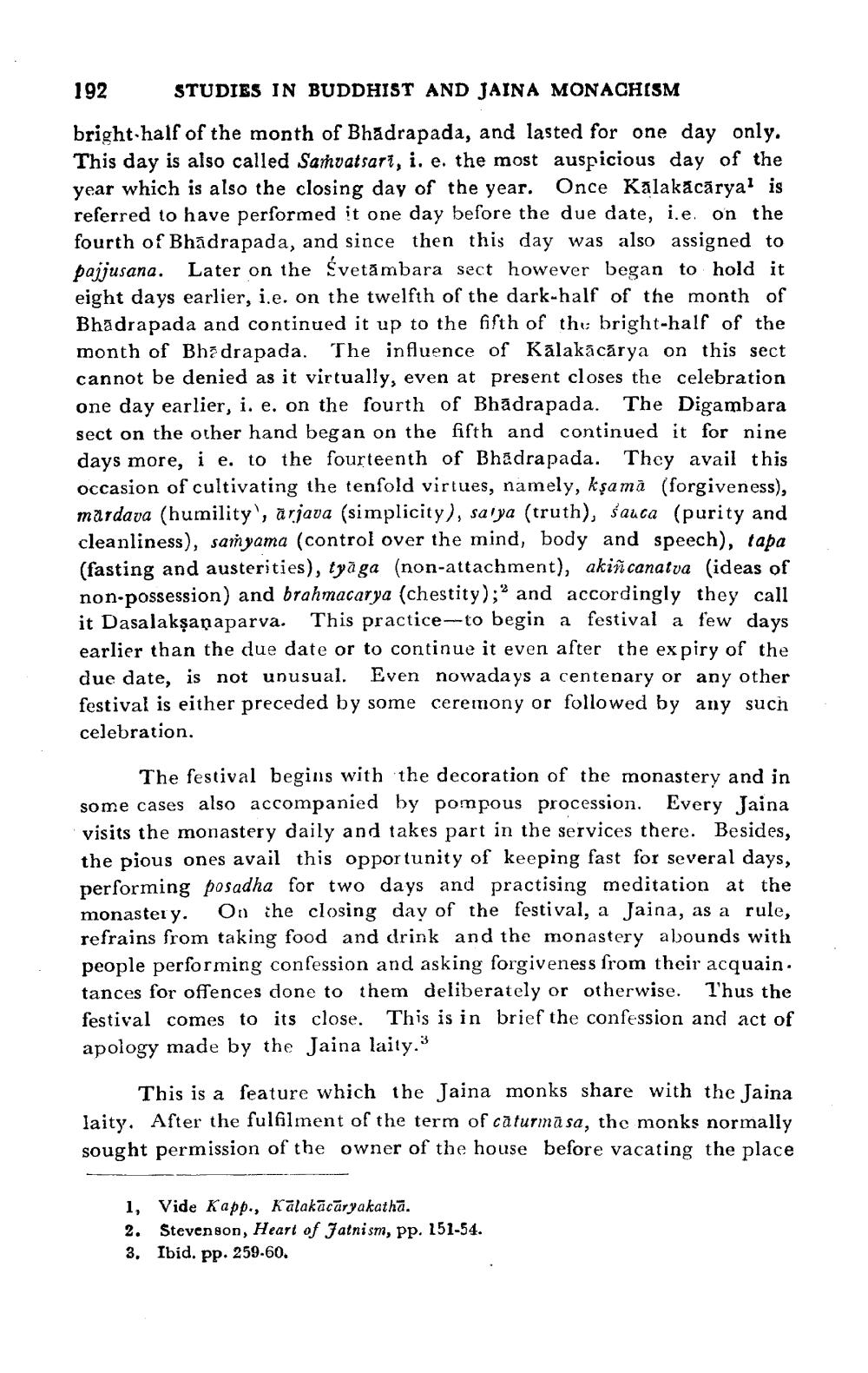________________
192
STUDIES IN BUDDHIST AND JAINA MONACHISM
bright-half of the month of Bhadrapada, and lasted for one day only. This day is also called Samvatsari, i. e. the most auspicious day of the year which is also the closing day of the year. Once Kalakācārya1 is referred to have performed it one day before the due date, i.e. on the fourth of Bhadrapada, and since then this day was also assigned to pajjusana. Later on the Évetambara sect however began to hold it eight days earlier, i.e. on the twelfth of the dark-half of the month of Bhadrapada and continued it up to the fifth of the bright-half of the month of Bhadrapada. The influence of Kālakācārya on this sect cannot be denied as it virtually, even at present closes the celebration one day earlier, i. e. on the fourth of Bhadrapada. The Digambara sect on the other hand began on the fifth and continued it for nine days more, i e. to the fourteenth of Bhadrapada. They avail this occasion of cultivating the tenfold virtues, namely, kşama (forgiveness), mardava (humility, arjava (simplicity), saya (truth), sauca (purity and cleanliness), samyama (control over the mind, body and speech), tapa (fasting and austerities), tyaga (non-attachment), akiñcanatva (ideas of non-possession) and brahmacarya (chestity);" and accordingly they call it Dasalakṣaṇaparva. This practice-to begin a festival a few days earlier than the due date or to continue it even after the expiry of the due date, is not unusual. Even nowadays a centenary or any other festival is either preceded by some ceremony or followed by any such celebration.
The festival begins with the decoration of the monastery and in some cases also accompanied by pompous procession. Every Jaina visits the monastery daily and takes part in the services there. Besides, the pious ones avail this opportunity of keeping fast for several days, performing posadha for two days and practising meditation at the monastery. On the closing day of the festival, a Jaina, as a rule, refrains from taking food and drink and the monastery abounds with people performing confession and asking forgiveness from their acquain. tances for offences done to them deliberately or otherwise. Thus the festival comes to its close. This is in brief the confession and act of apology made by the Jaina laity."
This is a feature which the Jaina monks share with the Jaina laity. After the fulfilment of the term of caturma sa, the monks normally sought permission of the owner of the house before vacating the place
1, Vide Kapp., Kalakācāryakatha.
2. Stevenson, Heart of Jatnism, pp. 151-54.
3. Ibid. pp. 259-60.




